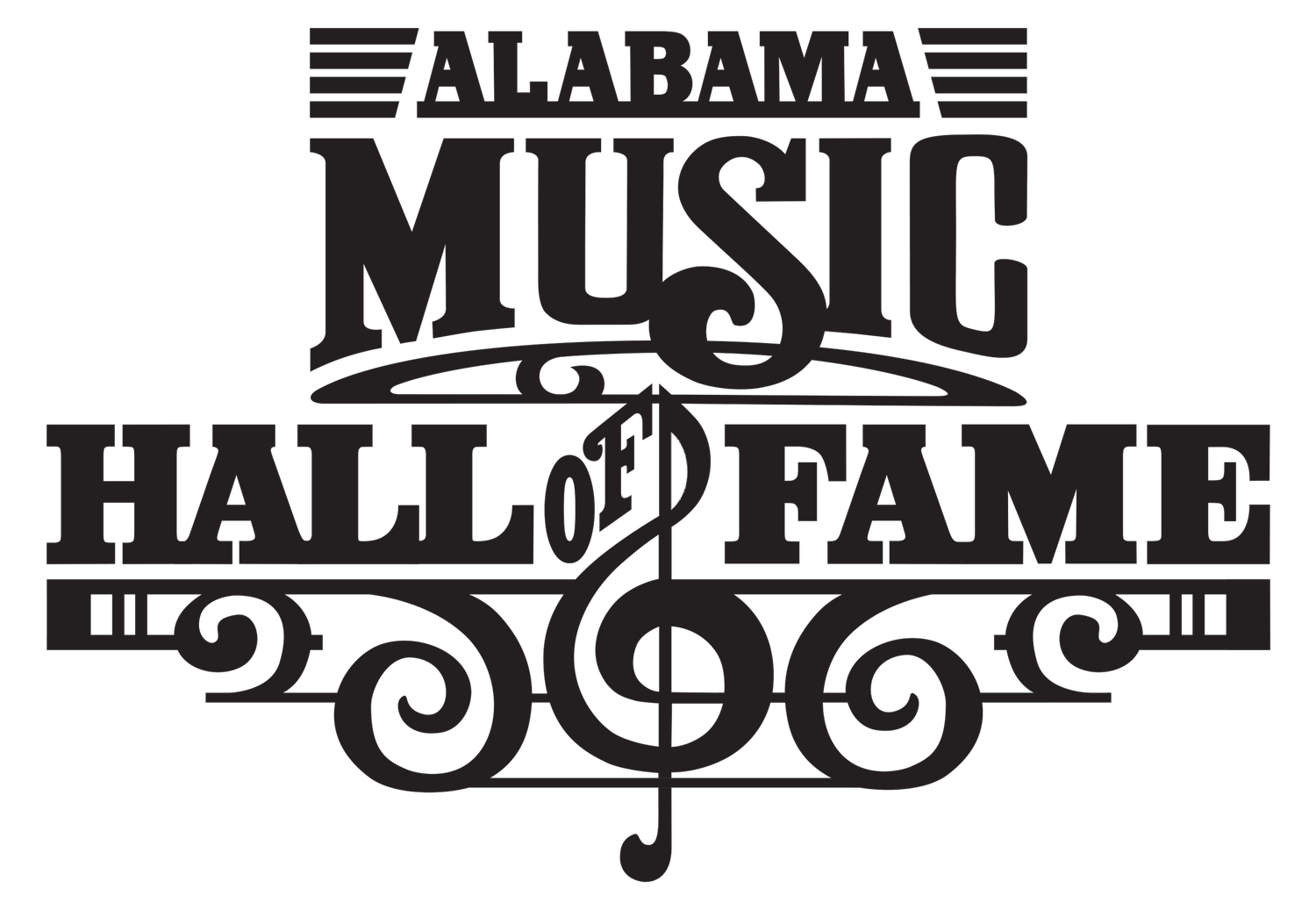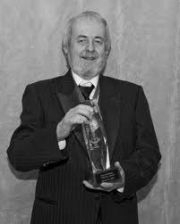Paul Hornsby
2010 Inductee
Born in Elba, Al. in 1944 and raised in nearby New Brockton, Paul's first musical influence was listening to his father, an old time fiddler, play at local square dances. When he was fourteen, he began playing guitar, which was his first serious entry into creating music. Paul learned his licks from Chet Atkins, Merle Travis, and then the "Ventures" records.
The "Ventures" was as close to Rock 'n Roll as he came until he enrolled at the University of Alabama in 1962. " That's when I first heard blues and R&B acts like Slim Harpo, Jimmy Reed, Arthur Alexamder, and so on, playing at frat parites. I had a pretty 'flashy' style of pickin' back then, and these guys always let me sit in. Playing has never been any more fun than those days."
While living in Tuscaloosa, Al. in the mid 60's, Paul played in numerous college rock 'n roll bands. He eventually teamed up with Eddie Hinton and Johnny Sandlin and formed "The 5 Minutes" , playing R&B and Beatles cover songs. By this time he was now playing Hammond Organ as well as guitar. With this band, Paul did his first recording in a professional studio. "We went up to Fame Studio in Muscle Shoals and cut a custom record which got a lot of local airplay. This was my first taste of being a 'recording artist' " He continued to play occasional sessions in Muscle Shoals, Birmingham, and Nashville during this time, but had no aspirations of being a full time studio player or engineer. "I just wanted to be one of the"Beatles" .
The band name was later shortened to "The Men-its" when they decided to go on the road. In 1966 they signed with a booking agency in Nashville and toured the southeast and mid west, playing clubs with mostly copy material . Ironically, the song list included "Stormy Monday " , "Dimples", "Turn On Your Love Light" , etc. It was during this time that the band met and became friends with Duane and Gregg Allman. They had a band called "The Allman Joys" who played the same club circuit and "we chased each other all over the midwest".
In early 1967 Eddie Hinton decided to quit the road and become a session guitar player in Muscle Shoals, leaving the "Men-its" without a lead guitar player & singer. At the same time, the "Allman Joys" broke up and needed players. "One day Duane came up to me and asked 'why don't we join forces?' We thought it over at least three minutes and took him up on it". The new band now consisted of Paul , Johnny Sandlin, Mabron McKenny, Duane, & Gregg Allman. The first gig they played , after a couple of weeks of rehersal, was a month long engagement in St. Louis, Mo. in the historic "Gas Light Square" district. The band was still unofficially named at this time. One night at the club, the "Nitty Gritty Dirt Band" along with their manager Bill McEuen ,entered and caught the band's set. McEuen immediately went to a pay phone and called someone at Liberty Records in Los Angeles and announced that he had discovered "the next Rolling Stones". He decided to stay over the next day to meet with the band to convince them to come out to California and promised a record deal. "This was a big step, so this time we thought it over for at least five minutes, and decided to go".
Within a few weeks of getting established in Los Angeles, they signed with Liberty Records and the name "Hour Glass" was arrived at for the group. Eventually, two forgetable albums were recorded for the label. "The true sound of the 'Hour Glass' was never captured in the studio out there. The Beach Boys, Jan & Dean, and surfin' music were big out there at the time, but we were doing blues based rock & roll, just like you would expect a predecessor to the 'Allman Bros. Band' to be doing. The record company didn't have a clue what to do with us. In our set, we were doing 'Stormy Monday Blues', 'Statesboro Blues', 'Dimples', and other songs later made standards by the ABB. We played all of the biggest places in California, including the original Fillmore, Avalon Ballroom, Whiskey-a-go-go. The band played concerts with Jefferson Airplane, Buffalo Springfield, Animals, Janis Joplin with Big Brother, etc. Everthing was perfect, except for getting a hit record, which it would take to expand outside the state of California."
The closest the "Hour Glass" came to having their true sound captured on tape, was when the band pooled their own money and went back to Muscle Shoals, Al. to Fame Studio. Paul & Johnny had started out recording there a few years earlier. Among the songs from this session was the "BB King Medley", which can be found on a later Duane Allman anthology LP. " We did this to take back to the record company to show them the sound we wanted. Unfortunately, they hated it."
With things at a standstill at Liberty, the Hour Glass disbanded by late summer of 1968. Paul went back to Tuscaloosa, looked up some friends, and formed a new band called "South Camp". In addition to Paul, the group consisted of a young piano player named Chuck Leavell, Bill Stewart on drums (later a Capricorn session player), and Charlie Hayward on bass ( later a member of the Charlie Daniels Band).
Paul played with this group around Tuscaloosa, until he got a call one day in the spring of 1969. Duane Allman, since the Hour Glass disbanded, had became a session player back at Fame, in Muscle Shoals. "Duane had called to tell me that Atlantic Records had taken an interest in him, and asked if I would come up and lay some tracks with him. Johnny Sandlin was on drums and Berry Oakley played bass. Some of the cuts we did were 'Going Down Slow', 'Happily Married Man', and 'No Money Down' which were later released on either the Duane Allman Anthology or Dreams ABB boxed set."
It was during these Fame sessions that Paul met Phil Walden. Phil had recently become Duane's manager. There was talk of putting a band together again with Duane, which was essentually reforming the Hour Glass. Paul, reluctant from the last Hour Glass experience, declined. Instead, he accepted a position from Walden, as studio staff musician at newly forming Capricorn Sound Studio in Macon, Ga. Paul, along with Johnny Sandlin on drums, Pete Carr (former Hour Glass member) on guitar, and Robert Popwell (later with the "Crusaders") on bass, became the rhythm section at Capricorn Studio. "We were trying to pattern the success of the legendary Muscle Shoals rhythm section and, my heros, Booker T.and the M.G.'s the staff band at Stax."
For awhile, Paul and the guys played on records for R & B artists like Eddie Floyd and Arthur Conley, and also folk acts like Livingston Taylor. He settled into daily studio work and became studio manager at Capricorn. In addition to playing sessions, there were artists coming through who occasionally asked him to join them for tours. Livingston Taylor and Dr. John were among his favorites. "I got a master's degree playing B-3 behind Dr. John."
By this time, Capricorn was up and running as a full blown record label , with the success of the ABB, who had formed and moved to Macon at the same time as Paul. " One day I was asked by the label to produce a local Macon band. During the sessions the band broke up a couple of times. As this was my first effort at production, I desperately wanted to finish the entire album, so I invited some of my old "South Camp" buddies from Tuscaloosa, to come over to complete the recording and become the band. included Chuck Leavell, Bill Stewart, and Charlie Hayward. The album , released as "Sundown" on the short-lived "Ampex" label was quickly forgotten , but the musicians have gone on to make music history.
Not long after the Sundown album, Capricorn signed a band from South Carolina called the "Marshall Tucker Band". It fell Paul's lot to do the production duties. After two months of 15 hour sessions, this band's first album was released, self-titled the "Marshall Tucker Band". The rest is history. Paul produced the next five Marshall Tucker hit LP's for Capricorn. In addition to producing, his distintive piano style can also be heard on those albums in such standards as "Heard It In A Love Song", "Can't You See", and others.
In the mid 70's Paul left his position as Capricorn staff producer, and went independent. This enabled him to produce outside artists on other labels. One such artist was The Charlie Daniels Band. He recorded four albums with Charlie including the southern anthem "The South's Gonna Do It Again" and "Long Haired Country Boy". In addition to the four studio albums, there were"3 or 4 of the 'Volunteer Jam' live albums with practically everyone in the world on stage together, including Willie Nelson " . He also continued to produce other acts for Capricorn, such as the "Wet Willie Band" and countless others.
There suddenly had become a new musical genre, formed out of bands from these environs, dubbed "Southern Rock". This music had become accepted and loved by countless listeners the world over. It has been a long road since that pioneer southern rock band, "Hour Glass" set out for California in 1967.

